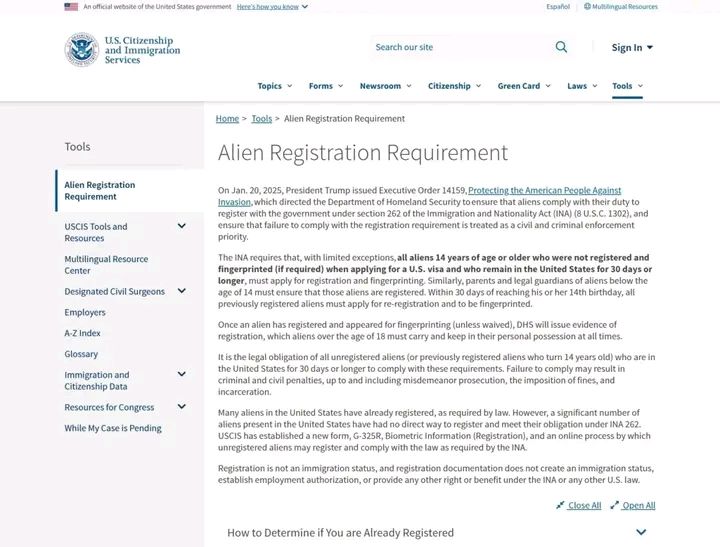U.S. Tightens Immigration Regulations for Foreign Nationals
The United States government has announced that all foreign nationals—regardless of origin—must carry valid proof of legal status at all times while residing or staying in the country. This includes Ghanaians and other international residents who are legally present in the U.S.
The policy, enforced by the U.S. Department of Homeland Security (DHS), is part of renewed efforts to streamline immigration control and bolster national security protocols.
Who Is Affected?
-The directive applies to all non-citizens aged 18 and above. This includes:
-Lawful Permanent Residents (Green Card holders)
-Visa holders (students, tourists, business, etc.)
-Asylum seekers and refugees
-Temporary Protected Status (TPS) beneficiaries
-Undocumented immigrants
All must carry one of the following at all times:
-Permanent Resident Card (Green Card)
-Employment Authorization Document (EAD)
-Form I-94 (Arrival/Departure Record)
-Valid passport with U.S. visa or related documentation
Failure to comply may result in civil or criminal penalties, including fines of up to $5,000 and imprisonment for up to 30 days.
Why This Policy Now?

According to DHS, this enforcement is part of longstanding U.S. federal law under the Immigration and Nationality Act (INA), which has often gone unenforced in modern times. However, recent concerns over border security and overstayed visas have prompted a revival of strict enforcement.
A DHS spokesperson noted, “This policy is not new law but renewed enforcement of existing immigration regulations. It aims to ensure all non-citizens are compliant with entry and residency rules.”
What Are the Concerns?
The new policy has sparked debate among immigration advocates and legal experts. Critics warn that the move could lead to increased profiling and unfair targeting of immigrant communities.
“This policy revives post-9/11 era practices that were proven to be both ineffective and discriminatory,” said Angela Romero, a legal analyst with the National Immigration Justice Center. “Carrying papers at all times may sound simple, but it opens the door to harassment and potential rights violations.”
What Should Ghanaians and Other Immigrants Do?
Ghanaians living in the U.S. are urged to:
Ensure their immigration documents are up to date
Carry copies or digital proof of legal status when in public
Consult immigration attorneys if their status is unclear or pending
Stay informed about changes on the USCIS official website
Final Thoughts
This immigration policy marks a turning point in how the U.S. interacts with foreign nationals. While it aims to promote legal compliance, concerns around civil liberties and immigrant safety are expected to grow. As enforcement begins, it’s crucial for affected individuals to stay alert, aware, and legally protected.
Also Read: Ghana Celebrates Francophonie Walk 2025

